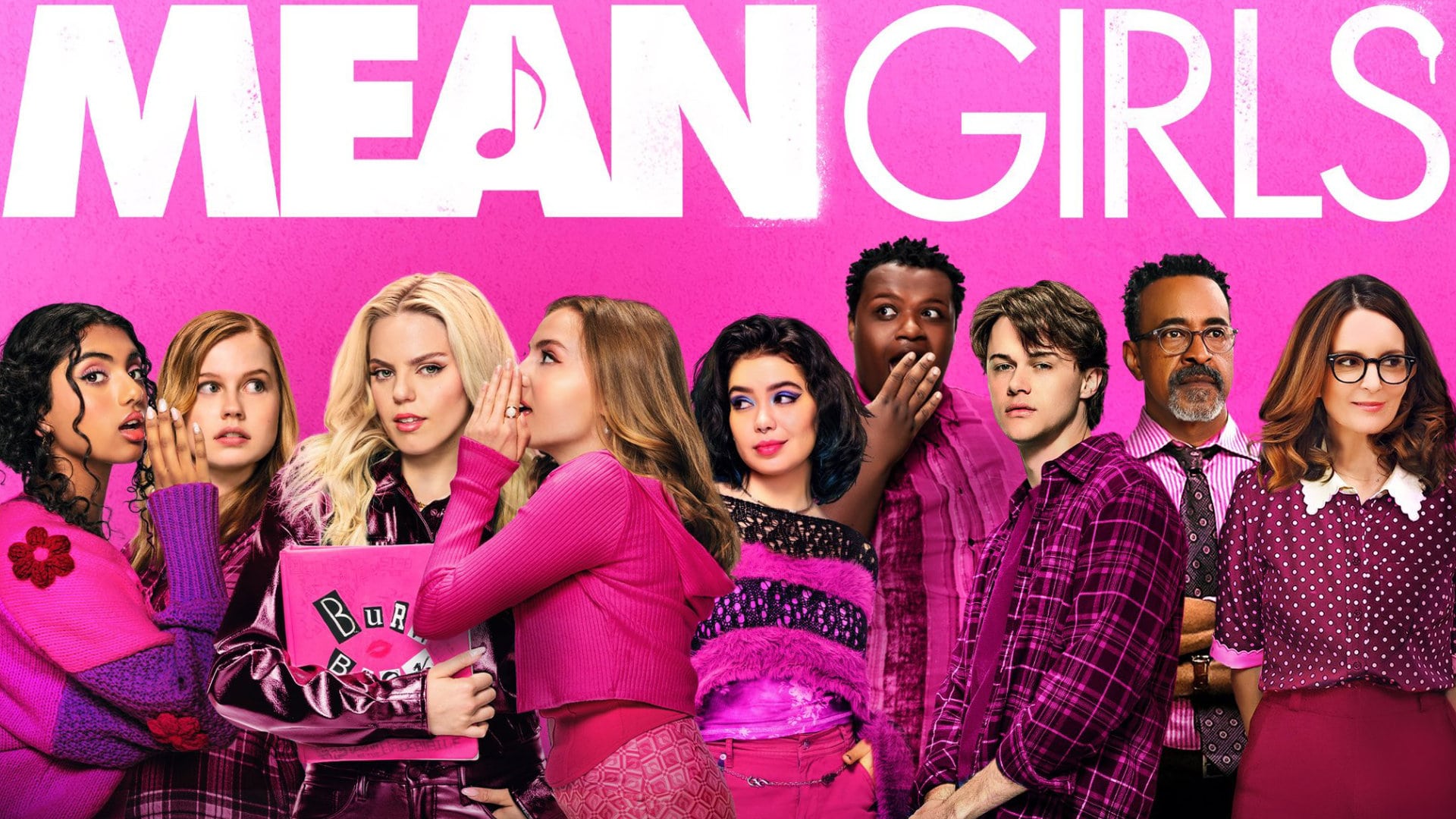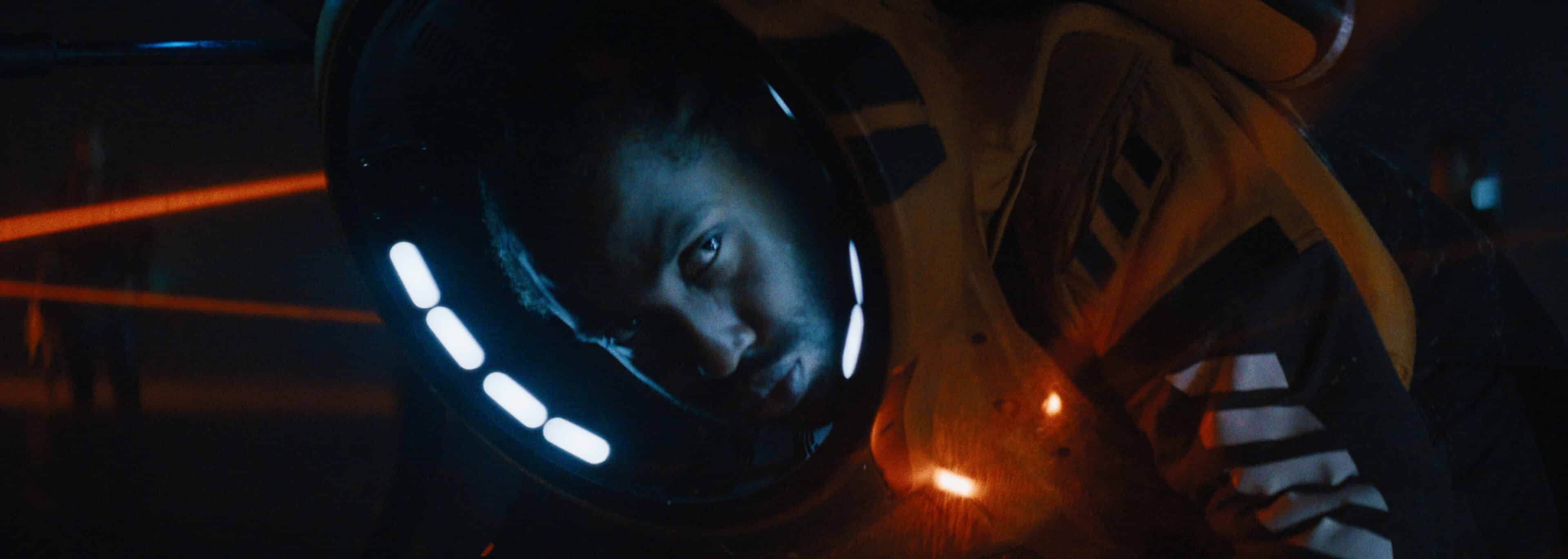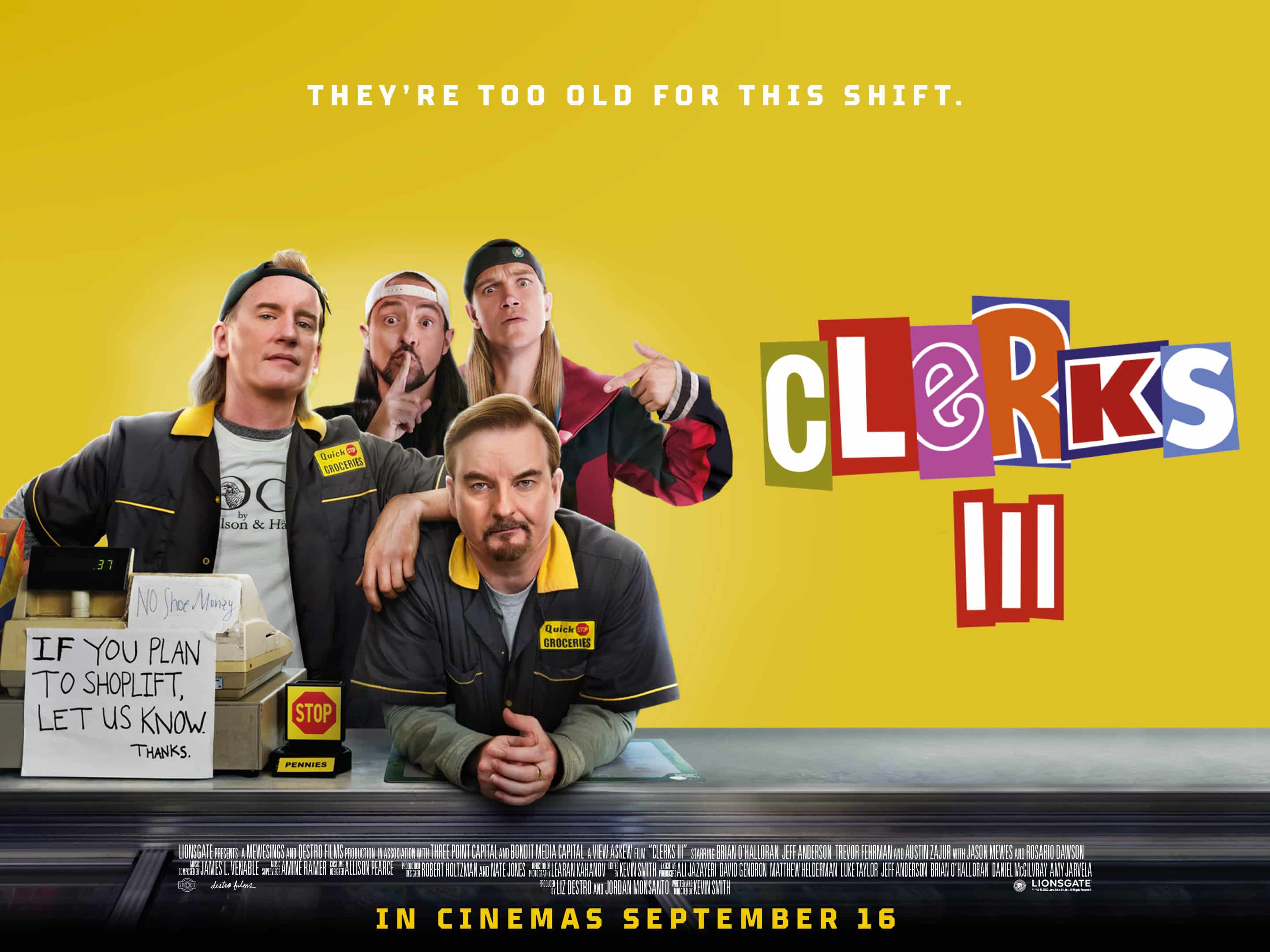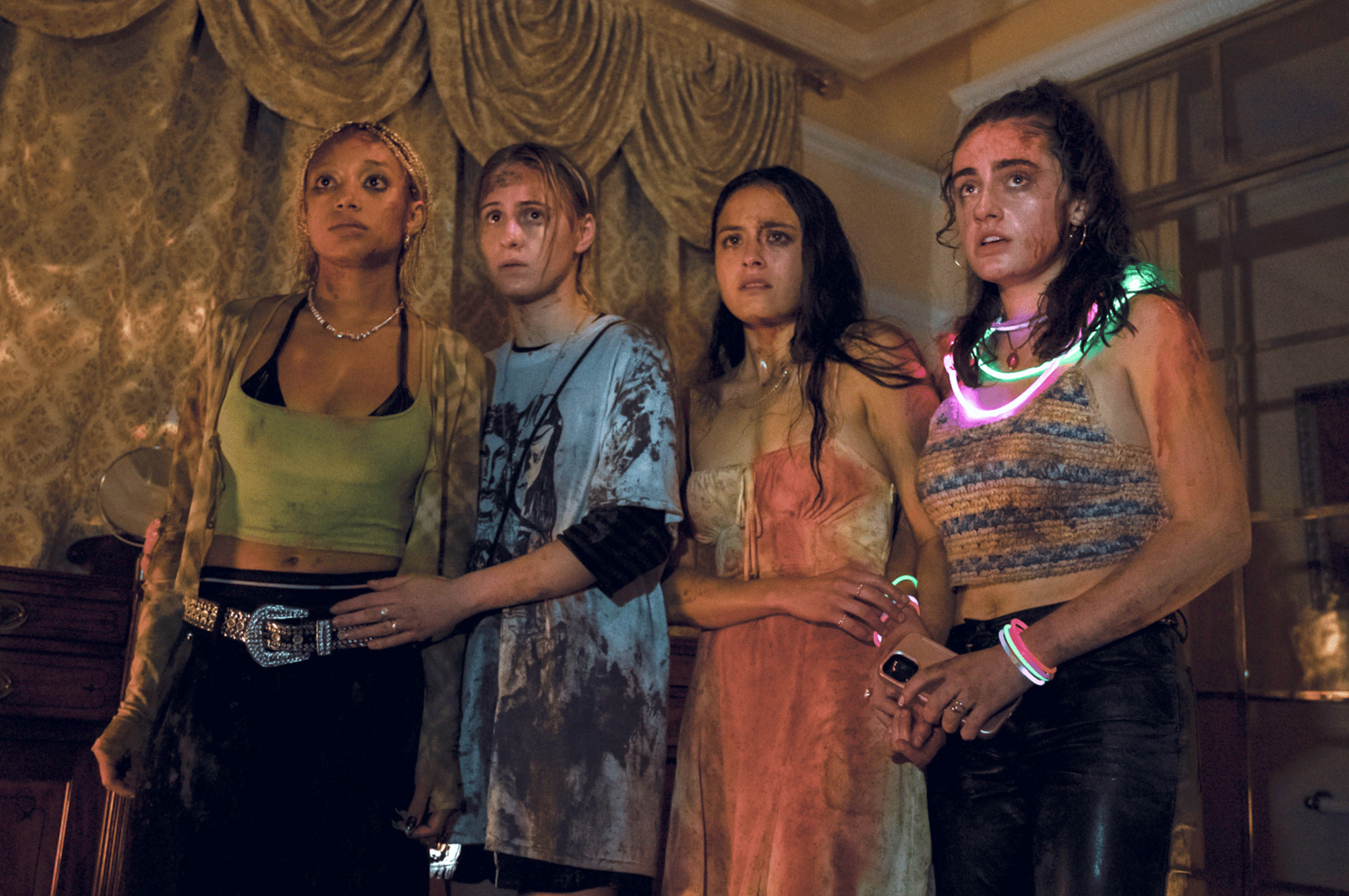
Opening in selected UK cinemas this week is the stunning documentary Life, Animated, a deeply personal story of Owen, an young man in his early twenties who overcame issues with his autism through Disney films. By watching films like Peter Pan, Aladdin and The Little Mermaid, he went from a life where he was unable to talk to leaving home and living independently, something we witness in this powerful, moving documentary from Oscar-winning filmmaker Roger Ross Williams.

Owen Suskind in Life, Animated
We caught up with Roger to talk about this wonderful movie.
The Hollywood News: Roger, thanks for taking the time to speak with us.
Roger Ross Williams: Absolutely, no problem
I saw the film yesterday and thought it was truly remarkable, so congratulations on it.
Thank you so much.
I just want to start off by going back to the start and how you became aware of Owen and his family and this amazing story.
Well, it started as a book by Owen’s father, Ron Suskind, who is a Pulitzer Prize-winning writer who writes very serious books on very serious topics, like the financial crisis and terrorism. This is his book on his own life and his own son. Ron and I have known each other for fifteen years. We worked together at ABC News – I used to be a journalist – and we worked [there] together. He was the editor of The Wall Street Journal at the time and I was a young producer. We stayed in touch and when he was writing this book he came to me and said ‘I think this would make a great documentary’, and I totally agreed and within weeks I was filming Owen; on Valentine’s Day 2014 at his Valentine’s Day dance.

I’ve not read the book unfortunately – I hope to. That will contain Owen’s past history, and his story, but this film is as much about the present too. How did you even start to begin constructing things.
Early on I brought on my editor David Teague, a brilliant editor and started to think about how would we construct this film. The book is all in the past so that would have been totally boring because it would have just talking head interviews, and then I learned from Ron and Cornelia that Owen was about to go through all of this transformative stuff; graduate from school; he had fallen in love; he was about to become independent and movie into a place of his own, and so I though wow, this is a great coming of age story and I can follow him in this really transformative year of his life and then flash-back to how he got there. Most of the film is actually told in present day, following Owen and his romance and his life, and then in the beginning of the film, just in the first third we flash-back to pivotal moments in his development of how he got to where he is today.
How was it filming with him? Obviously you knew the family but you have a team around you and you would have had a cameraperson with you all of the time. How did he react to that? It would have been an intrusion on anyone’s life…
Yes, but Owen is life your ideal documentary subject in that he lives in the moment and he lives in the land of the lost side-kicks. He’s always doing voices and acting out scenes from films that are playing inside his head, so he completely ignores the camera. Once we established ourselves in his life and his daily routine, it was kind of amazing how he would just live his life very naturally and never look at the camera and never engage with it, and just forget about us. It was a dream.

There’s some wonderful sequences, some where Owen is looking directly into the camera lens when he’s watching these Disney movies on video tape. How did you achieve that because that’s a wonderful moment.
It was important that Owen told the story and was told from his point of view from the inside looking out. I used this Intertron, which is a camera behind a television screen so Owen is not looking at me asking him questions, he’s looking at the television screen and therefore looking right into the lens of the camera, but because he’s spent his life looking at a television screen he would focus on me on screen, almost if I was like a character on TV. He would just answer questions and the effect was pretty amazing. I would ask him a couple of questions and then I would play a Disney clip, and then he would mouth the words and interact with the Disney clip, and the audience is, in a sense, inside the Disney clip because he’s looking right into the audience. That effectively sees the audience brought inside his head. Everything I did in the movie was to bring the audience into Owen’s inner-world until they are immersed in his mind and the land of the lost side-kicks.

The ‘Intertron’ scenes being shot.
Were Disney on-board from the off, because you use a lot of actual clips from some of their big movies. Or did you take a gamble?
Yes. I took a leap of faith. I had a dialogue with my producer Julie Goldman and I really started a dialogue with the folks at Disney. We were connected because one of the presidents of Disney, Sean Bailey, is on the board of trustees of the Sundance Institute, and Sundance connected us. He really helped us work through the difficulties. What he did was that he assembled the head of legal, the head of marketing and animation together in one room and Julie, my producer, and I took them on a journey through the film, what it could be, and showed them scenes of Owen and they just totally fell in love with him and were totally moved by it. They made a decision not to stand in our way – we licensed the footage but they let us re-draw their characters in Owen’s interpretation in the land of the lost side-kicks, which was unprecedented.
Who had that unenviable task of reanimating those sequences?
That was a company called Mac Guff in Paris. Phillippe [Sanrier] is the owner of the company and they do big 3D animated movies but this all hand-drawn and took a year of young French animators hand-drawing all of the animation. They are brilliant and have done Despicable Me, The Lorax, Minions, and all of these big movies but this was a passion project for Phillippe, the owner.

I think this started for you [promotion wise] at Sundance this year (2016), and you’ve taken it all around the world. How is that experience? It must raise huge awareness of the subject matter but also of the film itself, which I’m sure is a joy to show everywhere.
We premiered at Sundance at the end of January and that was an extraordinary experience. Cornelia and Walt [Owen’s brother] saw the film at Sundance for the first time, in front of an audience of 1000 people and did a Q+A. We’ve been on the road with the family, and Owen has embraced his role as a star and hero of his journey and he has audiences across America and around the world screaming themselves hoarse when he turns up on stage. He loves running the Q+As. He said to me the other day; ‘We’re going to do more Q+As in 2017, right?’ Owen has become the hero of his own destiny, in his own story and has become a hero to people with autism across America, but inspirational to everyone because he’s taken such a long journey from where he started, from where he couldn’t even speak to now where he’s standing in front of audiences of a thousand that are there cheering his name.
I wish you the best of luck with it. We’re hearing awards being mentioned… Oscars?
We’ll see what happens. Today the short-list comes out [for the 2017 Oscars].
Our fingers are crossed.
I’m a little bit of a wreck right now.
Life, Animated is released through Dogwoof in UK cinemas from Friday 9th December, 2016.

Latest Posts
-


Film Festivals
/ 2 hours agoPanorama, Generation and Forum programmes now complete for 2025 Berlinale
The Panorama, Generation and Forum strands have now completed their line-up for this year’s...
By Paul Heath -


Film News
/ 4 hours agoGary Webster joins new British horror movie ‘Doctor Plague’ with Martin Kemp
Popular British actor Gary Webster, best known for his role as Ray Daley in...
By Paul Heath -


Home Entertainment
/ 4 hours ago‘Nosferatu’ sets home premiere release date
A UK home premiere release has been set for Robert Eggers’ new film Nosferatu,...
By Paul Heath -


Film Trailers
/ 4 hours agoOne final trailer for Reese Witherspoon and Will Ferrell comedy ‘You’re Cordially Invited’
Ahead of a release on Prime Video on Thursday, check out this one final...
By Paul Heath











